Middle East
Mahmoud Khalil, student leader of Columbia protests, arrested | Israel-Palestine conflict News

United States Immigration and Customs Enforcement agents (ICE) have arrested a Palestinian graduate student who played a prominent role in last year’s pro-Palestinian protests at New York’s Columbia University, the student workers’ union said on Sunday.
The student, Mahmoud Khalil at the university’s School of International and Public Affairs, was arrested at his university residence on Saturday, the Student Workers of Columbia union said in a statement.
Khalil’s wife is a US citizen and he has a permanent residency green card, the union said. He remained in detention on Sunday. Khalil’s wife declined to comment through one of Khalil’s fellow students.
Khalil’s lawyer, Amy Greer, told the Associated Press news agency that she spoke by phone with one of the ICE agents during the arrest, who said they were acting on State Department orders to revoke Khalil’s student visa. Informed by the lawyer that Khalil was in the country as a permanent resident with a green card, the agent said they were revoking that too, according to the lawyer.
Greer said the authorities declined to tell Khalil’s wife, who is eight months pregnant, whether he was accused of committing a crime. Khalil has since been transferred to an immigration detention facility in Elizabeth, New Jersey.
“We have not been able to get any more details about why he is being detained,” Greer told the AP. “This is a clear escalation. The administration is following through on its threats.”
The arrest appeared to be among the first known actions under President Donald Trump’s pledge to deport international students who joined the protests against Israel’s war in Gaza that swept college campuses last year. His administration has claimed participants forfeited their rights to remain in the country by supporting Hamas, which is designated as a ‘terror’ organisation by the US.
The move has been described as an attack on First Amendment freedoms.
Khalil, an Algerian citizen of Palestinian origin, has been one of the school administrators’ lead negotiators of the pro-Palestinian student protesters, some of whom set up a tent encampment on a Columbia lawn last year and seized control of an academic building for several hours in April before police entered the campus to arrest them. Khalil was not in the group that occupied the building but was a mediator between Columbia provosts and the protesters.
The protesting students called for Columbia’s divestment from companies with ties to Israel, a ceasefire and an end to the war that killed nearly 50,000 Palestinians and turned the enclave into rubble after nonstop bombardment. The US provided the bulk of the ammunition for the war.

Columbia said last year that it would consider expediting some of the students’ demands through its investments committee.
Rights groups have accused Israel of committing genocide in Gaza – home to 2.3 million people. Despite a ceasefire in place since January 19, Israel has blocked the entry of any aid into Gaza since March 1, drawing condemnation from rights groups and aid agencies.
The October 7, 2023, Hamas attack on Israel and subsequent Israeli military offensive on Gaza led to months of pro-Palestinian protests that roiled US college campuses.
At least 1,100 people were killed in the Hamas attack and some 240 people were taken captive. Most of the captives have been released as part of truce deals. A new round of truce talks will resume in the Qatari capital, Doha, on Monday.
Targeted by the government
A spokesperson for Columbia said the school was barred by law from sharing information about individual students.
The Department of Homeland Security and the State Department, which oversees the country’s visa system, did not respond to questions from the news agencies. It was not immediately clear on what grounds ICE agents arrested Khalil. The ICE comes under the US Department of Homeland Security.
In an interview with the Reuters news agency a few hours before his arrest on Saturday about the Trump administration’s criticism of Columbia, Khalil said he was concerned that he was being targeted by the government for speaking to the media.
The Trump administration on Friday said it had cancelled government contracts and grants worth about $400m to Columbia University. The government said the cuts and the student deportation efforts are due to “anti-Semitic” harassment at and near Columbia’s Manhattan campus.
“What more can Columbia do to appease Congress or the government now?” Khalil said before his arrest, noting that Columbia had twice called in police to arrest protesters and had disciplined many pro-Palestinian students and staff, suspending some.
“They basically silenced anyone supporting Palestine on campus and this was not enough. Clearly, Trump is using the protesters as a scapegoat for his wider agenda [of] fighting and attacking higher education and the Ivy League education system.”
In response to the announced grant cuts on Friday, Columbia’s interim president, Katrina Armstrong, said the school was committed to combating anti-Semitism and was “working with the federal government to address their legitimate concerns”.
Protesting students have denied the charges of anti-Semitism.
‘This is only the beginning’
Maryam Alwan, a Palestinian American senior at Columbia who has protested alongside Khalil, said the Trump administration was dehumanising Palestinians.
“I am horrified for my dear friend Mahmoud, who is a legal resident, and I am horrified that this is only the beginning,” she said.
US Secretary of State Marco Rubio said last week that international students who support Hamas, which the US has designated a “terrorist” organisation, face visa revocation and deportation.
On Thursday, Columbia issued a revised protocol for how students and school staff should handle ICE agents seeking to enter private school property.
The school said ICE agents without a judicial arrest warrant may be allowed to enter its private property in “exigent circumstances”, which it did not specify.
“By allowing ICE on campus, Columbia is surrendering to the Trump administration’s assault on universities across the country and sacrificing international students to protect its finances,” the Student Workers of Columbia said in its statement.
Khalil lives in a university apartment building near Columbia’s main gated campus.
Middle East
Israel kills 32 Palestinians waiting for food at US-backed Gaza aid sites | Israel-Palestine conflict News
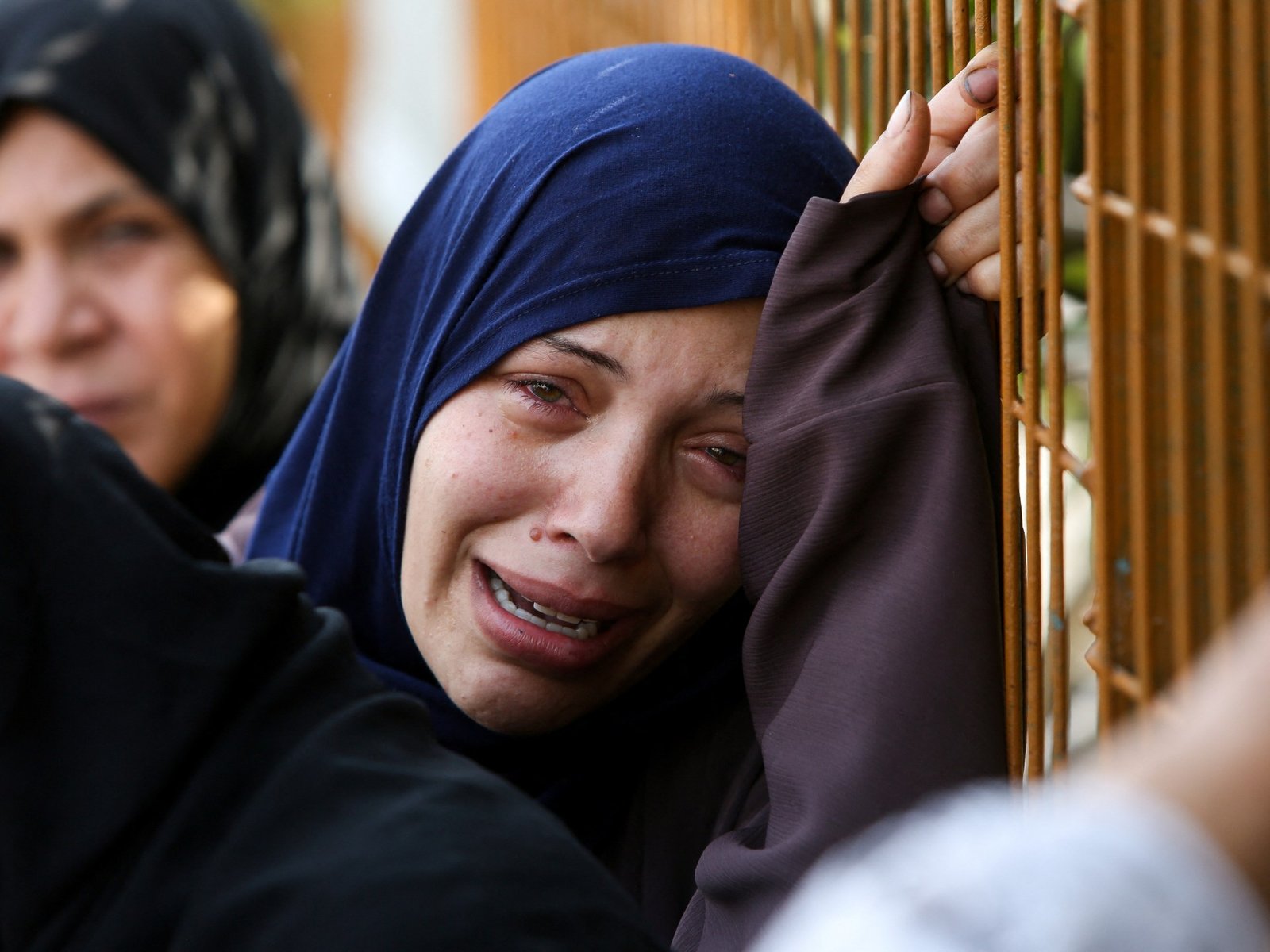
Israel has killed at least 32 Palestinians waiting to get food at two aid distribution sites in Gaza, leaving more than 200 others injured.
Israeli tanks opened fire on thousands of civilians gathered at a distribution site in southern Gaza’s Rafah on Sunday morning, killing at least 31 people, according to Gaza’s Government Media Office.
Soon after, another person was killed in a shooting at a similar distribution point south of the Netzarim Corridor in Gaza City, said the office’s statement on Telegram.

The aid is being distributed by Gaza Humanitarian Foundation (GHF), a controversial group backed by Israel and the United States, which has completed a chaotic first week of operations in the enclave.
The United Nations and other aid groups have refused to cooperate with the GHF, accusing it of lacking neutrality and suggesting the group has been formed to enable Israel to achieve its stated military objective of taking over all of Gaza.
‘Killed for seeking one meal for children’
Ibrahim Abu Saoud, who witnessed the attack on aid seekers in Rafah, told The Associated Press news agency that Israeli forces opened fire on people as they moved towards the distribution point.
Abu Saoud, 40, said the crowd was about 300 metres (328 yards) away from the military. He said he saw many people with gunshot wounds, including a young man who died at the scene.
“We weren’t able to help him,” he said.
Al Jazeera’s Hind Khoudary, reporting from Deir el-Balah in central Gaza, said Palestinians are being killed while trying to secure “one meal for their children”.
“This is why Palestinians have been going to these distribution points, despite the fact that they know that they are controversial. They [distribution points] are backed by the US and Israel, but they do not have any other option,” she said.
“[Even] the food parcels that were distributed to Palestinians are barely enough. We are talking about one kilo of flour, a couple of bags of pasta, a couple of cans of fava beans – and it’s not nutritious. It’s not enough for a family in Gaza nowadays.”
The GHF told the AP that Israeli soldiers fired “warning shots” as Palestinians gathered to receive food. The group denied reports that dozens of people were killed, describing them as “false reporting about deaths, mass injuries and chaos”.
The Israeli army said in a statement on the Telegram messaging app that it was “currently unaware of injuries caused by [Israeli] fire within the humanitarian aid distribution site” and that the incident was still under review.
The Government Media Office in Gaza condemned the attacks, describing the GHF’s distribution points as “mass death traps, not humanitarian relief points”.
“We confirm to the entire world that what is happening is a systematic and malicious use of aid as a tool of war, employed to blackmail starving civilians and forcibly gather them in exposed killing points, managed and monitored by the occupation army and funded and politically covered by … the US administration,” it said in a statement.
Speaking from Gaza City, Bassam Zaqout of the Palestinian Medical Relief Society said the current aid distribution mechanism had replaced 400 former distribution points with just four.
“I think there are different hidden agendas in this aid distribution mechanism,” he told Al Jazeera. “The mechanism does not cater to the needs of the people, such as the elderly and people with disabilities.”
Palestinian group Hamas, which runs the enclave’s government, released a statement, saying the Israeli shootings were a “blatant confirmation of premeditated intent” as it held Israel and the US fully responsible for the killings.
The Popular Front for the Liberation of Palestine (PFLP) said the killings were a “full-fledged war crime” and demanded international intervention to “stop this ongoing massacre and impose strict accountability mechanisms”.
Sunday’s killings capped a deadly first week for the project’s operations, coming on the back of two earlier shootings at two distribution points in the south – the first in Rafah, the second west of the city – which saw a combined total of nine Palestinians killed.
In Gaza, crucial aid is only trickling in after Israel partially lifted a more than two-month total blockade, which brought more than two million of its starving residents to the brink of a famine.
Middle East
Hamas says ceasefire proposal offers ‘no guarantees’ for end to Gaza war | Israel-Palestine conflict News
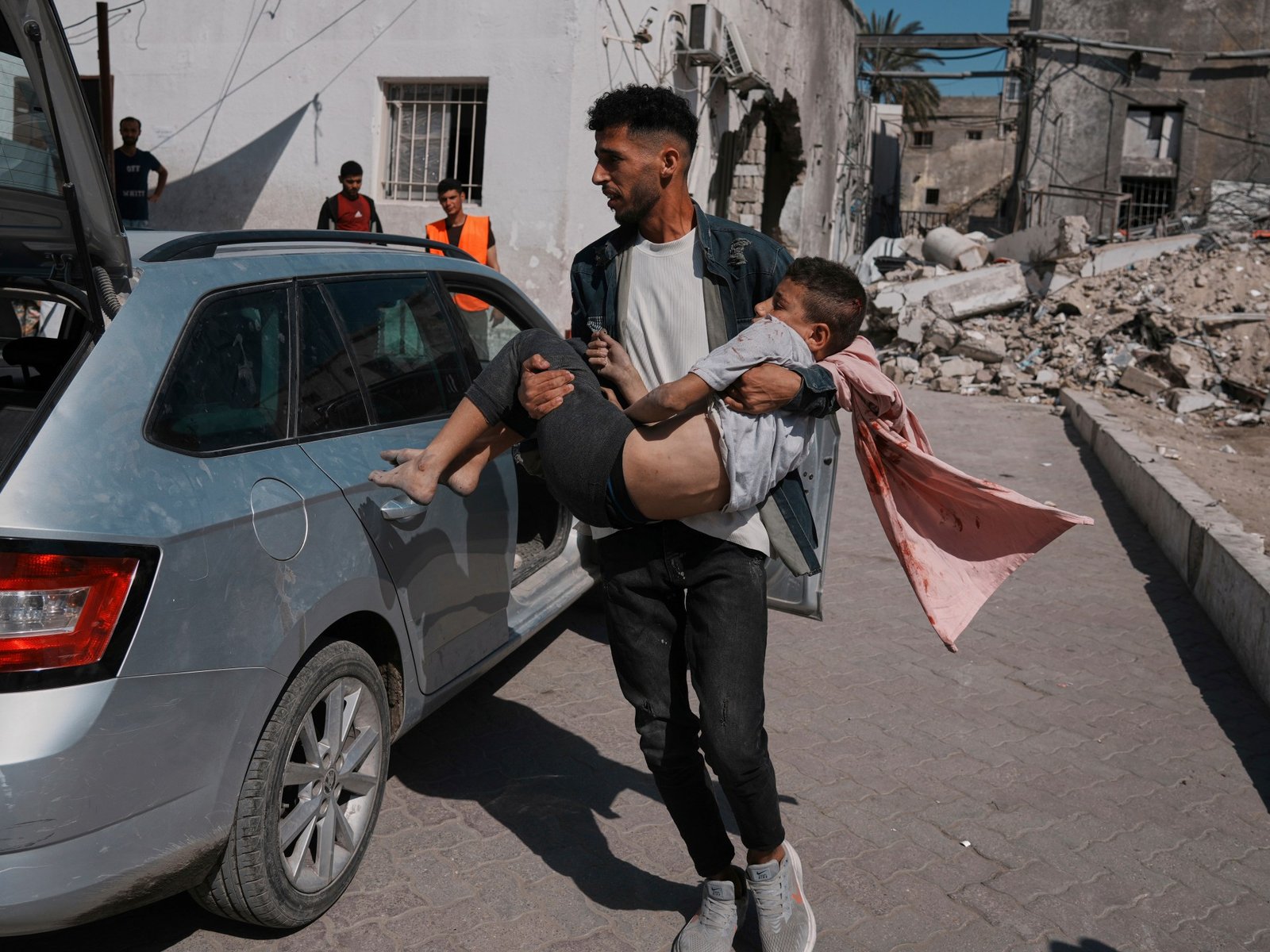
The Palestinian group Hamas has submitted its response to a United States-backed ceasefire proposal, but a leading official from the group said the proposed deal offered “no guarantees to end the war”.
Speaking to Al Jazeera on Saturday, Basem Naim said that Hamas had still “responded positively” to the latest proposal relayed to it by US special envoy Steve Witkoff, despite the Palestinian group saying that the proposal was different to one it had agreed upon with Witkoff a week earlier.
“One week ago, we agreed with Mr Witkoff on one proposal, and we said, ‘This is acceptable, we can consider this a negotiating paper,’” Naim said. “He went to the other party, to the Israelis, to get their response. Instead of having a response to our proposal, he brought us a new proposal … which had nothing to do with what we agreed upon.”
In a statement released earlier on Saturday, Hamas had said that it had submitted a response to Witkoff, and that the proposal “aims to achieve a permanent ceasefire, a comprehensive withdrawal from the Gaza Strip, and ensure the flow of aid” to Palestinians in Gaza.
Hamas added that 10 living Israeli captives would be released as part of the agreement, as well as the bodies of 18 dead Israelis, in exchange for an “agreed-upon number of Palestinian prisoners”.
Witkoff called Hamas’s response “totally unacceptable”.
“Hamas should accept the framework proposal we put forward as the basis for proximity talks, which we can begin immediately this coming week,” the envoy said in a post on social media. “That is the only way we can close a 60-day ceasefire deal in the coming days in which half of the living hostages and half of those who are deceased will come home to their families, and in which we can have at the proximity talks substantive negotiations in good-faith to try to reach a permanent ceasefire.”
Israeli Prime Minister Benjamin Netanyahu slammed Hamas’s response, “As Witkoff said, Hamas’s response is unacceptable and sets the situation back. Israel will continue its action for the return of our hostages and the defeat of Hamas.”
Israel has now killed more than 54,000 Palestinians since October 2023, with starvation looming across Gaza after weeks of Israeli blockade, and only a small flow of aid since Israel allowed it to resume in mid-May.
Starvation
With hopes for a permanent truce seemingly fading once again, the level of hunger and desperation inside Gaza grows, with Israel allowing only a trickle of humanitarian aid into the Strip after it had imposed a total blockade for more than two months. The UN warned on Friday that all of the 2.3 million population of Gaza is now at risk of famine. That came after it said in mid-May that one in every five Palestinians there is experiencing starvation.
The World Food Programme (WFP), which has enough food ready near Gaza’s borders to feed the besieged territory’s entire population for two months, renewed its call for an immediate ceasefire as the only way to get the food to starving Palestinians.
The UN’s food agency said in a statement that it brought 77 trucks loaded with flour into Gaza overnight and early on Friday, but they were stopped by people trying to feed their starving families.
The US- and Israeli-backed Gaza Humanitarian Foundation (GHF) is continuing with its own controversial aid distribution, which other aid groups say could violate humanitarian principles and militarise the delivery of desperately needed food. The Gaza Government Media Office said this week that at least 10 Palestinians had been killed by Israeli forces while trying to get aid.
“We went to this new area and we came out empty-handed,” resident Layla al-Masri said of a new GHF distribution point. “What they are saying about their will to feed the people of Gaza are lies. They neither feed people nor give them anything to drink.”
Another displaced Palestinian, Abdel Qader Rabie, said people across the besieged territory have nothing left to feed their families. “There’s no flour, no food, no bread. We have nothing at home,” he said.
Rabie said that every time he tries to get a box of aid at the GHF, he is swarmed by hundreds of other people trying to get it. “If you are strong, you get aid. If you are not, you leave empty-handed,” Rabie added.
There are also other risks. Families have reported that people have gone missing after reaching GHF distribution points.
“One of these cases is a man from the al-Mughari family – The family is appealing to the ICRC, OCHA, the civil defence teams, to go and search for him in that area – very close to the Netzarim Corridor [in central Gaza],” said Hind Khoudary, reporting from Deir el-Balah, central Gaza. Israeli authorities rejected the accusation, Khoudary added.
Bombing and forced displacement
The Israeli army is continuing its attacks on Gaza, with the spokesperson of the territory’s civil defence saying that approximately 60 homes had been bombed in the last 48 hours in Gaza City and northern Gaza.
On Saturday, there were also reports from across Gaza of the Israeli bombing killing at least 20 Palestinians. More than 3,900 Palestinians have been killed since Israel unilaterally broke a ceasefire in March and resumed its devastation of Gaza, despite growing international condemnation.
Since Friday’s early hours, the Israeli army has also ordered “all residents” of southern Khan Younis, Bani Suheila, and Abasan to evacuate immediately after it said rockets were earlier fired. “The [army] will aggressively attack any area used as a launching pad for terrorist activity,” military spokesperson Avichay Adraee said in a statement. The area of southern Gaza “has been warned several times in the past and has been designated a dangerous combat zone”, he added.
According to the UN, nearly 200,000 people have been displaced in the past two weeks alone, with displacement orders now covering the entirety of Gaza’s northernmost and southernmost governorates, as well as the eastern parts of each of the three governorates in between.
Middle East
Saudi Arabia says it will jointly fund Syria state salaries with Qatar | Syria’s War News
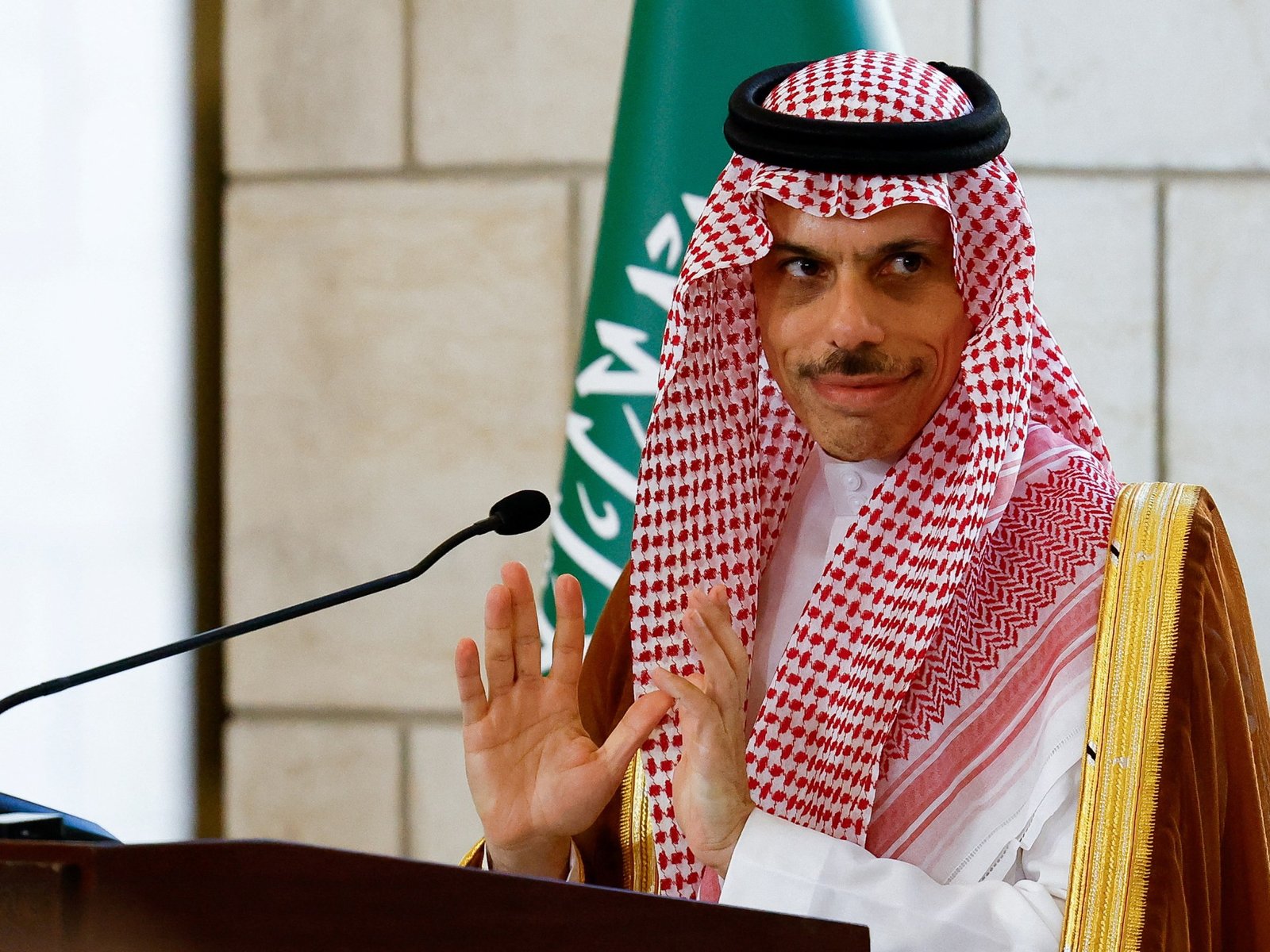
Saudi and Qatari efforts aim to stabilise Syria by funding public-sector salaries and boosting economic recovery plans.
Saudi Arabia’s Foreign Minister Prince Faisal bin Farhan Al Saud has said that the kingdom and Qatar will offer joint financial support to state employees in Syria.
His statements came on Saturday during a joint press conference with his Syrian counterpart Asaad al-Shibani in Damascus.
The two Gulf nations have been among the most important regional supporters of Syria’s new authorities, who ousted longtime ruler Bashar al-Assad in December after nearly 14 years of war.
Saturday’s statement did not provide details on the exact amount of the support for Syria’s public sector. However, it comes after Syrian Finance Minister Mohammed Yosr Bernieh said earlier in May that Qatar was going to provide Syria with $29m per month for an initial three months to pay civilian public sector worker salaries.
The Reuters news agency had also reported that the United States had given its blessing to the Qatari initiative, which came a few days before President Donald Trump announced that sanctions on Syria imposed during the al-Assad regime would be lifted. The European Union has since also lifted sanctions on Syria.
Further evidence of Saudi Arabian and Qatari support came in mid-May, when it was announced that the two countries had paid off Syria’s debt to the World Bank, a sum of roughly $15m.
International ties
Syria’s new government, led by interim President Ahmed al-Sharaa, has sought to rebuild the country’s diplomatic ties and convince wary Western states that he has turned his back on past ties with groups such as al-Qaeda.
The Syrian leader has repeatedly disavowed extremism and expressed support for minorities, but incidents of violence that has led to hundreds of deaths continue to cause international trepidation – even as the government and al-Sharaa denounce the killings.
Syria’s new government has also made a concerted effort to solidify ties to Gulf Arab states who have begun to play a pivotal role in financing the reconstruction of Syria’s war-ravaged infrastructure and reviving its economy.
On Tuesday, the European Union announced it had adopted legal acts lifting all economic restrictive measures on Syria except those based on security grounds. It also removed 24 entities from the EU list of those subject to the freesing of funds and economic resources, including the Central Bank of Syria.
And after Saudi Arabia and Qatar cleared Syria’s debt to the World Bank, the US-based financial institution said that it would restart operations in the country following a 14-year pause.
The World Bank has begun to prepare its first project in Syria, which will focus on improving electricity access – a key pillar for revitalising essential services like healthcare, education, and water supply. It also marked the start of expanded support to stabilise Syria and boost long-term growth.
Syria’s gradual re-integration into the global economy is in large part due to Trump’s dramatic shift in Washington’s policies towards the country. After announcing the lifting of US sanctions on May 13, Trump also became the first US president in 25 years to meet with a Syrian counterpart.
The US had already removed a $10m reward for the capture of al-Sharaa, and the Syrian president has been able to travel internationally and meet world leaders, including in Saudi Arabia and France.
Still, there is a lot to be done. A February report by the United Nations Development Programme (UNDP) estimated that at current growth rates, Syria would need more than 50 years to return to the economic level it had before the war, and it called for massive investment to accelerate the process.
The UNDP study said nine out of 10 Syrians now live in poverty, one-quarter are jobless and Syria’s gross domestic product “has shrunk to less than half of its value” in 2011, the year the war began.
-

 Africa4 days ago
Africa4 days agoSurvivor of Liverpool car ramming talks of shock and panic
-

 Sports3 days ago
Sports3 days agoThe Knicks are bringing hope and title dreams back to New York after years in the doldrums
-

 Lifestyle3 days ago
Lifestyle3 days agoChildren and careers: Talking to kids about what they want to be when they grow up
-

 Lifestyle4 days ago
Lifestyle4 days agoHow to decorate a patio, balcony or other small outdoor space
-

 Lifestyle4 days ago
Lifestyle4 days agoFaizan Zaki hopes to go from spelling bee runner-up to champ
-

 Europe4 days ago
Europe4 days agoFrench doctor accused of sexually abusing hundreds of children is sentenced to 20 years
-
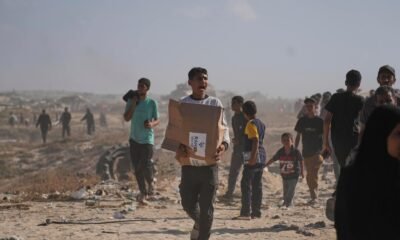
 Middle East4 days ago
Middle East4 days agoGaza’s aid system isn’t broken. It’s working exactly as designed | Humanitarian Crises
-
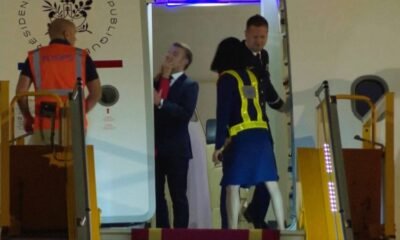
 Europe5 days ago
Europe5 days agoMacron’s marital shove disappears from French airwaves




